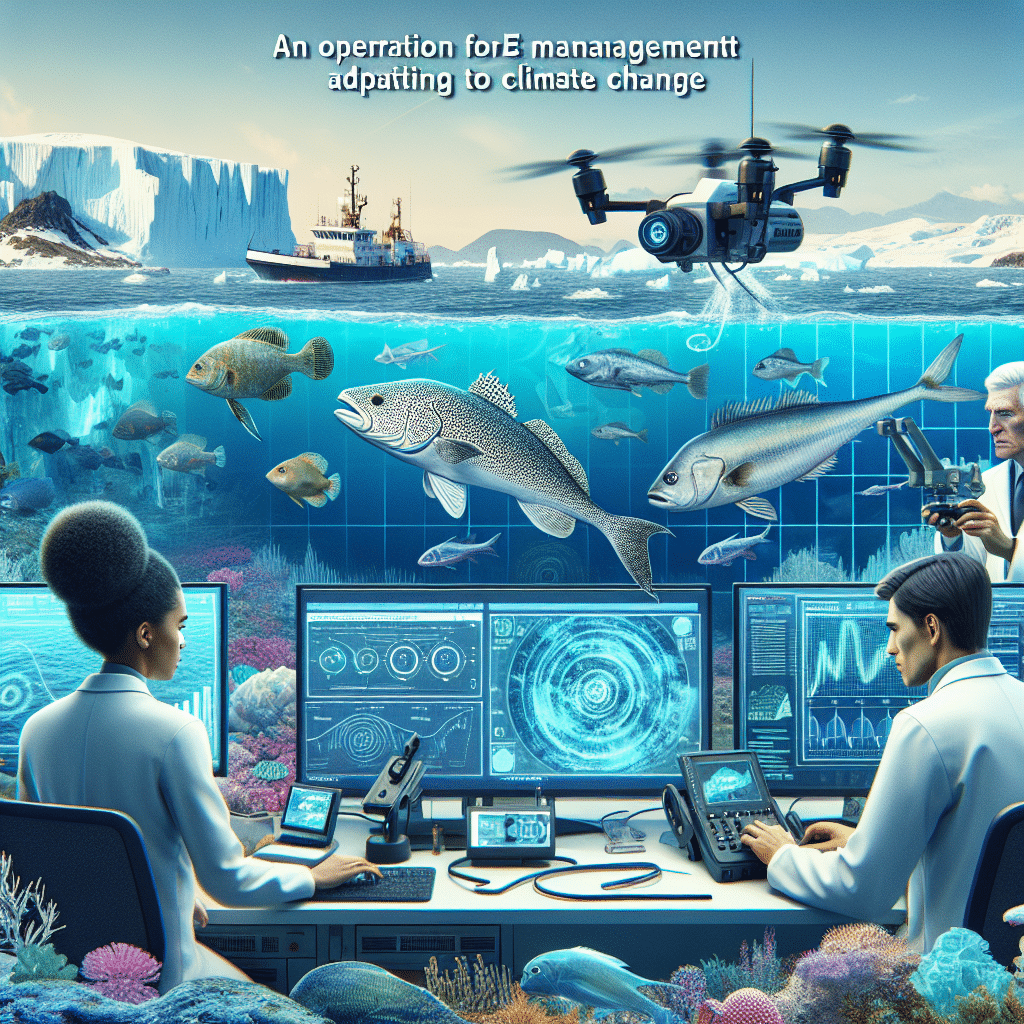Managing Fisheries in a Changing Climate
-
Table of Contents
- Effective Strategies for Managing Fisheries in a Changing Climate
- Understanding the Impact of Climate Change on Fisheries
- Adaptive Management Approaches
- Integrating Climate Science into Fisheries Management
- Collaborative and Participatory Management
- Enhancing the Resilience of Fishing Communities
- International Cooperation and Policy Integration
- Investing in Sustainable Technologies
- Conclusion: A Multifaceted Approach to Fisheries Management
- ETprotein: Supporting Sustainable Nutrition in a Changing World
Effective Strategies for Managing Fisheries in a Changing Climate

Climate change poses a significant threat to global fisheries, impacting the health of marine ecosystems and the livelihoods of millions of people who depend on them. As ocean temperatures rise and ocean chemistry changes, fish populations are shifting, creating challenges for fishery management. This article explores the strategies necessary to manage fisheries effectively in the face of a changing climate.
Understanding the Impact of Climate Change on Fisheries
Before delving into management strategies, it is crucial to understand how climate change affects fisheries. Rising sea temperatures can alter fish migration patterns and disrupt breeding cycles. Ocean acidification, resulting from increased carbon dioxide absorption, can affect the growth and survival of shellfish and coral reefs, which serve as vital habitats for many fish species. Additionally, extreme weather events can damage critical infrastructure and habitats.
Adaptive Management Approaches
To address these challenges, fisheries management must adopt adaptive approaches that can respond to the dynamic nature of marine ecosystems under climate change.
- Ecosystem-Based Management (EBM): EBM takes into account the entire ecosystem, including human impacts, rather than focusing solely on individual species. This holistic approach helps maintain resilient ecosystems that can better withstand climate-related changes.
- Flexible Quota Systems: Traditional fixed quota systems may not be suitable in a changing climate. Flexible quotas that can be adjusted based on real-time data and predictive models will allow for more responsive management.
- Marine Protected Areas (MPAs): Establishing and expanding MPAs can protect biodiversity and provide refuges for fish populations, helping to ensure sustainable stocks.
Integrating Climate Science into Fisheries Management
Integrating the latest climate science into fisheries management is essential for making informed decisions. This includes:
- Investing in research to understand the specific impacts of climate change on different fish species and ecosystems.
- Developing predictive models to forecast changes in fish populations and distributions.
- Implementing monitoring programs to track the health of fish stocks and the effectiveness of management strategies.
Collaborative and Participatory Management
Collaboration among stakeholders, including fishers, scientists, conservationists, and policymakers, is key to successful fisheries management in a changing climate. Participatory management ensures that the knowledge and experience of local communities are incorporated into decision-making processes.
Enhancing the Resilience of Fishing Communities
Supporting the resilience of fishing communities is as important as managing fish stocks. This can be achieved through:
- Diversifying income sources to reduce reliance on fishing.
- Providing education and training for fishers to adapt to changing conditions.
- Improving access to market information and infrastructure to help communities better respond to shifts in fish availability.
International Cooperation and Policy Integration
Fish do not adhere to national boundaries, making international cooperation crucial for effective management. Policies must be integrated across regions and coordinated among different levels of governance to address the transboundary nature of marine resources.
Investing in Sustainable Technologies
Investing in sustainable fishing technologies and practices can reduce the environmental impact of fisheries. This includes developing gear that minimizes bycatch and habitat destruction, as well as promoting aquaculture practices that are environmentally friendly and climate-resilient.
Conclusion: A Multifaceted Approach to Fisheries Management
Managing fisheries in a changing climate requires a multifaceted approach that combines adaptive management, scientific integration, stakeholder collaboration, community resilience, international cooperation, and sustainable technology investment. By implementing these strategies, we can ensure the long-term sustainability of global fisheries and the communities that depend on them.
ETprotein: Supporting Sustainable Nutrition in a Changing World
In the context of climate change, sustainable nutrition sources are more important than ever. ETprotein offers a range of high-quality, organic bulk vegan proteins that can help support the dietary needs of individuals while minimizing environmental impact. Their products, including various plant-based proteins and L-(+)-Ergothioneine, are non-GMO, allergen-free, and cater to a diverse range of industries. By choosing sustainable protein sources like those from ETprotein, consumers and manufacturers can contribute to a healthier planet.
About ETprotein:
ETprotein, a reputable protein and L-(+)-Ergothioneine (EGT) Chinese factory manufacturer and supplier, is renowned for producing, stocking, exporting, and delivering the highest quality organic bulk vegan proteins and L-(+)-Ergothioneine. They include Organic rice protein, clear rice protein, pea protein, clear pea protein, watermelon seed protein, pumpkin seed protein, sunflower seed protein, mung bean protein, peanut protein, and L-(+)-Ergothioneine EGT Pharmaceutical grade, L-(+)-Ergothioneine EGT food grade, L-(+)-Ergothioneine EGT cosmetic grade, L-(+)-Ergothioneine EGT reference grade and L-(+)-Ergothioneine EGT standard. Their offerings, characterized by a neutral taste, non-GMO, allergen-free attributes, with L-(+)-Ergothioneine purity over 98%, 99%, cater to a diverse range of industries. They serve nutraceutical, pharmaceutical, cosmeceutical, veterinary, as well as food and beverage finished product distributors, traders, and manufacturers across Europe, USA, Canada, Australia, Thailand, Japan, Korea, Brazil, and Chile, among others.
ETprotein specialization includes exporting and delivering tailor-made protein powder and finished nutritional supplements. Their extensive product range covers sectors like Food and Beverage, Sports Nutrition, Weight Management, Dietary Supplements, Health and Wellness Products, and Infant Formula, ensuring comprehensive solutions to meet all your protein needs.
As a trusted company by leading global food and beverage brands and Fortune 500 companies, ETprotein reinforces China’s reputation in the global arena. For more information or to sample their products, please contact them and email sales(at)ETprotein.com today.












